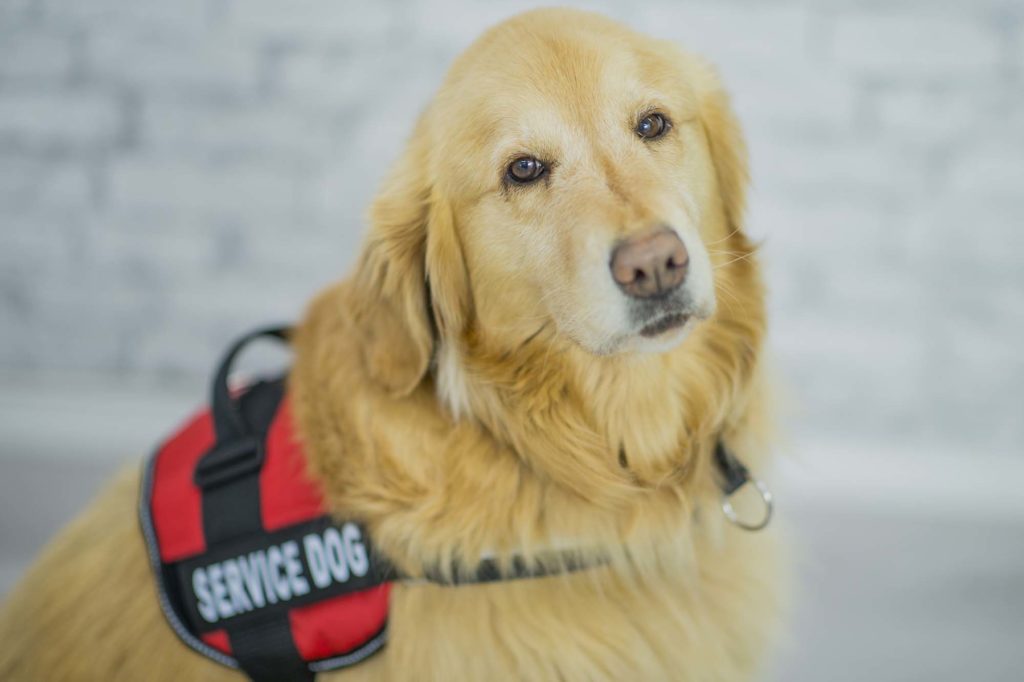News
Lions and Tigers and Miniature Horses, Oh My!

Many of our clients have been inquiring about their obligations regarding animals in the workplace. For employers, these obligations may vary depending on whether the person wanting to bring an animal into the workplace is a customer or an employee.
Customers
If the person is a customer and the business is a place of public accommodation, then the business is required to comply with Title III of the Americans with Disabilities Act as well as Florida Statute § 413.08 concerning the use of “service animals”. A “service animal” in Florida is limited to a dog or miniature horse that is individually trained to do work or perform tasks for an individual with a disability. Any other animals including, without limitation, cats, squirrels, snakes, and birds are not considered service animals and a business can refuse entry of these animals. Some examples of work done or tasks performed which may be directly related to an individual’s disability include, but are not limited to:
- guiding an individual who is visually impaired or blind;
- alerting an individual who is deaf or hard of hearing;
- assisting with mobility or balance;
- alerting an individual to the presence of allergens;
- helping an individual with a psychiatric or neurological disability by preventing or interrupting impulsive or destructive behaviors; or
- calming an individual with posttraumatic stress disorder during an anxiety attack.
If it is suspected that that an animal may be a pet rather than a service animal, the business may only ask:
- Is the animal a service animal required because of a disability?
- What work or tasks has the animal been trained to perform?
If the customer identifies both a disability and work done or a task performed related to the disability, then the animal must be allowed to accompany the customer, except in limited circumstances.
A service animal may be excluded if 1) the animal is out of control and the handler cannot or does not regain control; or 2) the animal is not housebroken. A service animal may also be excluded when the animal would cause a direct threat to others. In addition, service animals must be harnessed, leashed, or tethered, unless these devices interfere with the service animal’s work or the individual’s disability prevents him or her from using these devices. Individuals who cannot use such devices must maintain control of the animal through voice, signal, or other effective controls. Under control means that a service animal should not be allowed to bark repeatedly. If a dog barks just once, however, or barks because someone has provoked it, this would not mean that the dog is out of control. Even if a service animal is excluded, the customer must be given the opportunity to enter the business without the service animal.
Finally, the law does not require that service animals be allowed to sit or be fed at a table in a restaurant or be allowed to sit on chairs or at a bar.
Employees
While there are clear rules on “service animals” when the person is a customer, the analysis becomes a little trickier when the person wanting to bring an animal is an employee. As an employee, the individual may be entitled to greater protections under Title I of the Americans with Disabilities Act and the Florida Civil Rights Act, as well as local ordinances. Specifically, an employer may be required to assess whether the presence of the animal, which is not limited to a dog or miniature horse, is a reasonable accommodation. To determine whether the animal is a reasonable accommodation, the employer must engage in an interactive process with the employee, which is an information-gathering approach used by the employer with the employee to evaluate a request for accommodation. The interactive process may involve obtaining relevant information from a supervisor or the employee’s health care provider. Depending on the workplace, it may be a reasonable accommodation to allow an animal to accompany an employee at work, even if the animal does not qualify as a “service animal”.

